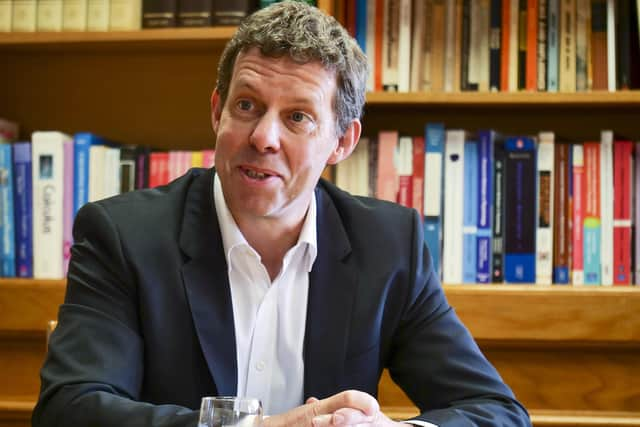University students across Yorkshire left shortchanged by strikes; when do we get a refund for our £9,250 a year tuition fees? – Sam Day
As a history student at the University of Sheffield, whose staff are striking this week, this means that I will have just one hour with a tutor. The rest of my tutors and lecturers won’t run seminars, won’t give lectures, and won’t reply to emails about work.
Advertisement
Hide AdAdvertisement
Hide AdThis isn’t a new situation; in the eight weeks of my semester so far, four weeks have been affected in some way by industrial action.


It’s easy to be frustrated by this state of affairs. Like almost all domestic students in the UK, my university course costs £9,250 a year. This debt – and added interest – will hang over me for the foreseeable future once I graduate. Losing about a third of contact time over a 12-week semester, therefore, seems to be a fairly insulting waste of money.
However, staff who strike seem to be as aware of this frustration as anyone. All of my lecturers who have taken part in industrial action have done so incredibly reluctantly, often engaging in open discussions with their classes and admitting that they are unsure if it is the right thing to do. They are aware of the damage it can cause to students and some work twice as hard in the weeks before and after striking to minimise any serious consequences on our education.
Despite this, and the fact that they are risking losing out on pay, university staff across the country continue to strike. The reasons motivating such drastic action are clear for students who see the conditions in which our tutors work every day.
Advertisement
Hide AdAdvertisement
Hide AdMany lecturers – especially younger staff on courses such as mine – are on insecure contracts, which often last only a year. As a result, young academics move from university to university trying to make ends meet, all while in a job that demands long hours aside from lecturing, including marking, planning, and working through mountains of bureaucracy.


Even senior academics, with more long-term job security, have been affected by recent changes to the Universities Superannuation Scheme (USS). These cuts to academics’ pensions will, according to the UCU, typically cause a 35 per cent reduction in post-retirement income. These conditions are not just unfair; they threaten the future of the UK’s world-renowned higher education system. Of course, there are real financial constraints at universities.
But in 2020-21, Professor Koen Lamberts, the Vice-Chancellor of my university, received £351,347, including pension contributions. The financial reports from that year show that 14 members of staff received a basic salary of over £145,000 – such amounts are not unusual among the senior staff of most universities in the UK.
It’s perhaps unsurprising that Prof Lamberts has said little to students at Sheffield about the industrial action which has badly disrupted our experience at his university; one does wonder, however, what exactly he does to earn a salary that wouldn’t look out of place on an executive floor in Canary Wharf.
Advertisement
Hide AdAdvertisement
Hide AdHowever, universities alone can’t resolve the conditions which have led to industrial action. The Government needs to recognise that their attempts to create a more privately-funded system has only led to a culture of exploitation.
If they genuinely believe that free-market principles are the best way of governing higher education, they should make it easier for students to claim refunds on tuition fees; after all, where else would it be acceptable to repeatedly not receive the services that you paid for?
Although Universities Minister Michelle Donelan has encouraged students to ask for refunds, she must also recognise that her department can improve the quality of our courses and help to prevent further strikes by re-taking a more active role in the regulation of academic pay and conditions.
Students are increasingly frustrated by repeated industrial action at our universities. But it is clear to us that the blame lies not with our lecturers. University leaders need to quickly improve working conditions to end this disruption to our education.
Advertisement
Hide AdAdvertisement
Hide AdAnd if Ministers do care about the experience of students, they should recognise that their abdication of responsibility since 2010 has left this country’s higher education system in a state of disrepair.
Sam Day is a second year History student at the University of Sheffield.
Support The Yorkshire Post and become a subscriber today. Your subscription will help us to continue to bring quality news to the people of Yorkshire. In return, you’ll see fewer ads on site, get free access to our app, receive exclusive members-only offers and access to all premium content and columns. Click here to subscribe.
Comment Guidelines
National World encourages reader discussion on our stories. User feedback, insights and back-and-forth exchanges add a rich layer of context to reporting. Please review our Community Guidelines before commenting.